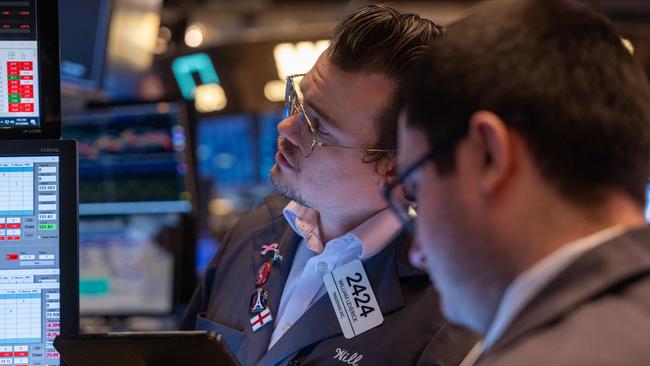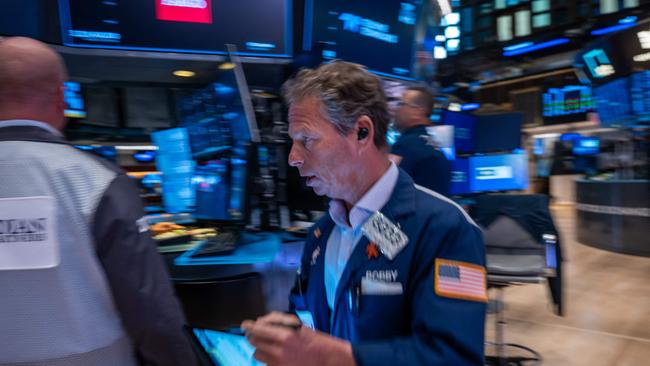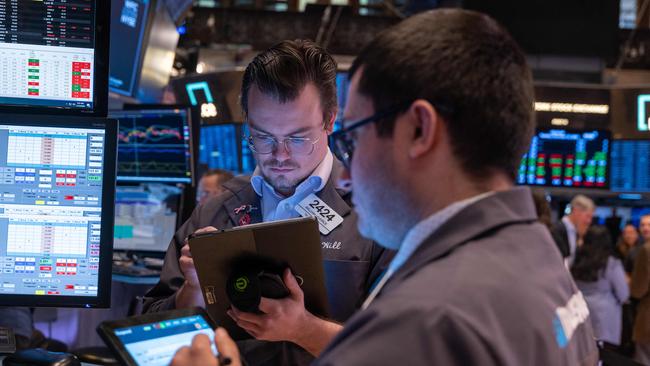Trump election sparks lift in US stock market confidence
The US stock market has soared after the election, but the full extent of the confidence boost sparked by the overwhelming victory for Republicans may come as a surprise.

The US stock market has soared since the Presidential election.
Smaller companies and those with substantial US exposures have done particularly well.
However, the full extent of the confidence boost sparked by the overwhelming victory for Republicans may surprise.
BofA’s Global Fund Manager Survey suggests the “Trump bump” could be more of a “boom”.
And despite Donald Trump’s “America first” policies, the lift in confidence may not be at the expense of the rest of the world. However, inflation expectations have turned up.
The survey found that the percentage of global fund managers that were overweight in US stocks soared from 10 per cent in October to an 11-year high of 29 per cent in November.
Some of that is due to the marked improvement in US economic data in the past month.

However, the period also corresponded with a marked rise in expectations that Donald Trump would win the election and that Republicans would also score a sweep of Congress.
Much of the improvement in sentiment detected by BofA happened after the election.
In fact, BofA strategists led by Michael Hartnett noted a sharp contrast between pre- and post-election responses, with improving sentiment toward both the economy and US equities.
“Post-election results showed higher global and US growth expectations, higher inflation expectations, a lower probability of a soft landing (and a corresponding rise in expectations of ‘no landing’), lower cash levels, higher allocations to US and Japanese equities, higher tech weighting, and big expectation for small caps and high yield bonds to outperform,” BofA strategists said.
The survey had 179 participants managing a combined $US503bn ($835bn) of assets under management respond from November 1-7. About 22 per cent of those were after the election.
After the election the S&P 500 rose as much as 4 per cent in four days, hitting a record high of 6017.31. The Russell 2000 Small Caps index soared 8 per cent.
Australia’s S&P/ASX 200 index rose 1.6 per cent within two days, then fell back to pre-election levels.
The pullback was mainly due to the commodity producers suffering from China’s underwhelming policy statements at the end of last week, together with ex-dividend falls in Westpac and ANZ.
Gold miners retreated as the commodity fell 7 per cent on profit taking as US political uncertainty abated. Gold had soared 40 per cent in 12 months. The rise accelerated before the election.

Contrary to worries about a global trade war hitting the global economy, the biggest shifts in client sentiment after the US election included a lift in those expecting global growth from minus 10 per cent to 23 per cent, the highest level since July 2021.
But those expecting higher global inflation flipped from minus 44 per cent to 10 per cent.
It was the first time since August 21 that investors forecast higher inflation in the next 12 months.
The estimated chance of a “soft landing” fell from 76 to 55 per cent, but the chance of “no landing” jumped from 14 to 33 per cent. The chance of a “hard landing” remained at 8 per cent.
Consistent with increased confidence in risk assets, the average cash level of fund managers surveyed after the election fell to 4 per cent from 4.3 per cent in October.
Their average allocation to US stocks rose 3 percentage points to a net 13 per cent overweight.
The eurozone stocks allocation was unchanged at a net 3 per cent underweight.
Emerging Markets stocks allocations rose 7 percentage points to 27 per cent, the highest since April 2023. Japan was down 11 percentage points to a net 13 per cent underweight, and the UK fell to a net 13 per cent underweight.
In the overall survey, the average allocation to stocks was a net 34 per cent overweight, up 3 percentage points since October. The bond allocation was a net 10 per cent underweight, down from 15 per cent. The cash allocation was 4 per cent overweight from 4 per cent underweight.
Investors were the most overweight stocks, Emerging Markets, and Healthcare versus most underweight energy, materials, staples, and Japanese markets.
In terms of sectors, banks rose to a net 18 per cent overweight – the highest since February 2023.

Healthcare dropped to a net 20 per cent overweight, the lowest since March 2021.
Materials fell to a net 22 per cent underweight, the lowest since May 2020, while energy collapsed to a net 27 per cent underweight from a net 8 per cent underweight, the lowest since October 2020.
Higher inflation was seen as the biggest tail risk for 32 per cent of respondents, followed by geopolitical conflict at 21 per cent. “Long Magnificent 7” was the “most crowded trade” at 50 per cent. The most positive catalysts for 2025 were seen as a acceleration of economic growth in China, followed by US tax cuts and productivity gains from AI.
It came as Citi warned that the post-election rally in US stocks could run out of steam as investors start to take profits. Investors added to bullish bets last week, pushing their S&P 500 exposure to the S&P 500 to the highest level in three years, according to Citi strategist, Chris Montagu.
Long positioning in the Nasdaq 100 and the Russell 2000 reflected “an extremely bullish outlook.”
“Profits are elevated for both S&P and Russell and this could lead to near-term profit-taking, which may limit further upside,” Mr Montagu wrote on Monday.





To join the conversation, please log in. Don't have an account? Register
Join the conversation, you are commenting as Logout